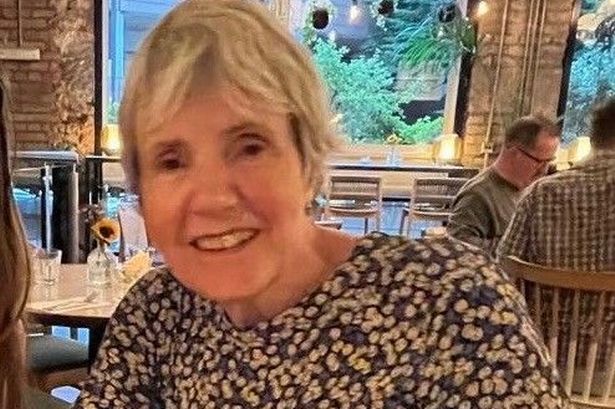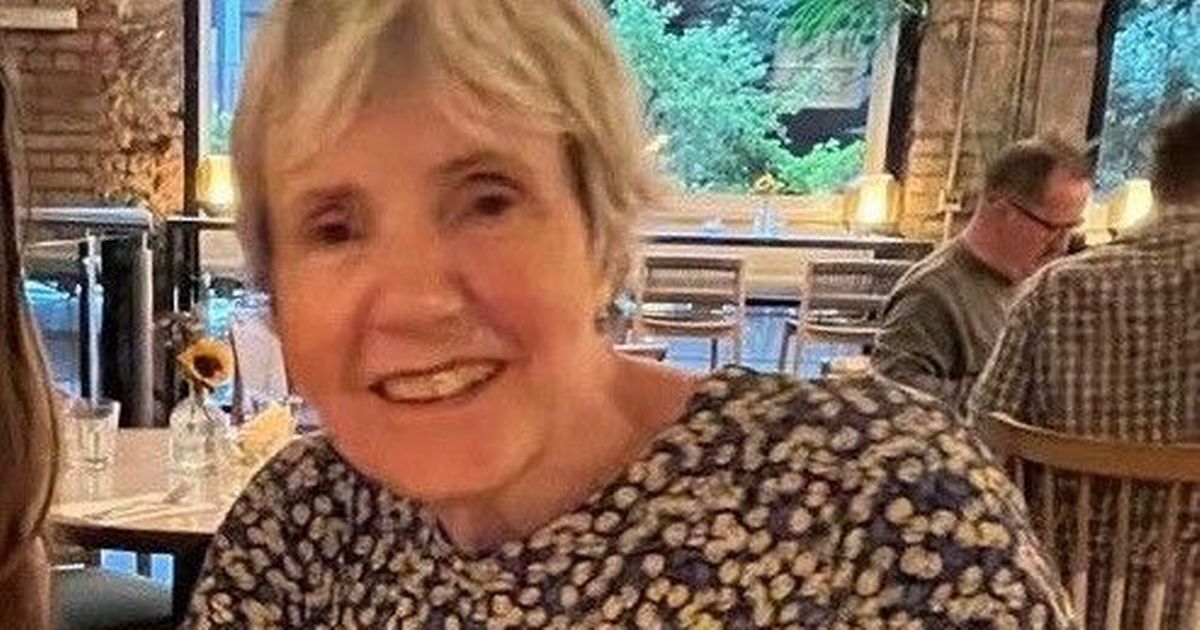‘I didn’t know if I would survive’ Sue Torkington
Sue Torkington
What Sue Torkington thought was a harmless reaction to some food at first actually turned out to be the first sign of a life-changing diagnosis.
As a nurse Sue, from Monmouthshire, thought she would know if something was wrong – but she didn’t. Unbeknownst to the 79-year-old when she noticed a rash on her hand while out on her Bristol shopping trip it was the first indicator she had stage four cancer.
Sue said: “We had just had lunch out and I thought perhaps the rash was because of something I had eaten – you know, perhaps a mild reaction to an ingredient had caused it. I didn’t really think anything of it.
“Then I noticed it was coming and going and appearing in different places but I still couldn’t make any connection that anything could be that wrong other than I had a bit of a cold too.
“I started to question things more after I had a blood test and it showed I was slightly anaemic. Being a nurse I was a bit concerned because I knew there was no reason for me to be anaemic.”
Sue’s career in nursing has spanned decades and continents — from her early days at Southmead Hospital in Bristol to leading a European nursing programme in the Netherlands and Spain. Sue moved to Wales 21 years ago with her family and settled into a community in Monmouthshire.
“I went to see my rheumatologist at Royal Glamorgan Hospital and I just said to him: ‘Look, I am a bit concerned about this blood test – I shouldn’t be anaemic’ and he said: ‘Don’t worry – we will do it again.’
“The report came back quickly and showed considerable deterioration in the results. All of a sudden he had arranged for me to have a CT scan at the Prince Charles Hospital in Merthyr on December 28.
“It had all happened so quickly and I had been so unwell over Christmas that by December 28 I could barely walk out of the hospital doors. By this point I thought something was really quite wrong.”
After a series of inpatient tests at the University Hospital of Wales in Cardiff Sue was diagnosed with stage four diffuse large B-cell lymphoma (DLBCL) which is described on the NHS website as an advanced cancer where the disease has spread from the lymph nodes to at least one organ outside the lymphatic system such as the liver, lungs, or bone marrow.
“Being told that, well, it sounded frightening,” Sue added.
“At the time I did not know if I was going to survive because my condition was getting worse so quickly. It was scary because you know stage four cancer is not good.”
Sue underwent six cycles of Pola-R-CHP chemotherapy with regular follow-ups at Nevill Hall Hospital in Abergavenny. Unfortunately, despite initial progress, her cancer returned in July 2024 and she was referred for CAR-T therapy – a cutting-edge treatment designed to reprogram her immune system to fight the disease.
Sue had her CAR-T infusion on November 13, 2024, in Cardiff – exactly one year after noticing the rash on her shopping trip in Bristol.
Throughout her journey Sue was supported by a multidisciplinary team including nurses, consultants, dieticians, psychologists, and support staff. Sue said it was a frightening diagnosis but the support, advice, information, and kindness of all the staff involved in her care made such a difference to her morale and determination to get better.
Today Sue is in remission and continues to attend follow-up appointments at Nevill Hall. She describes her recovery as “textbook” and credits the NHS teams for their expertise, compassion, and unwavering support.
“I feel well. I feel grateful. I’ve gained a deep appreciation for the health service and the people who make it work. Their dedication and kindness have been life-changing,” she said.

